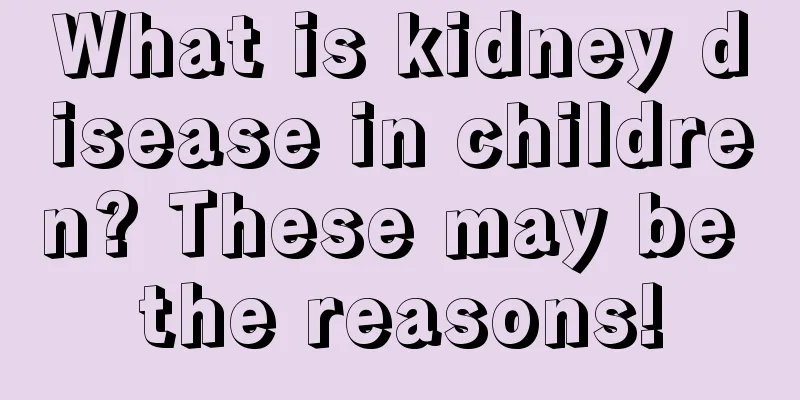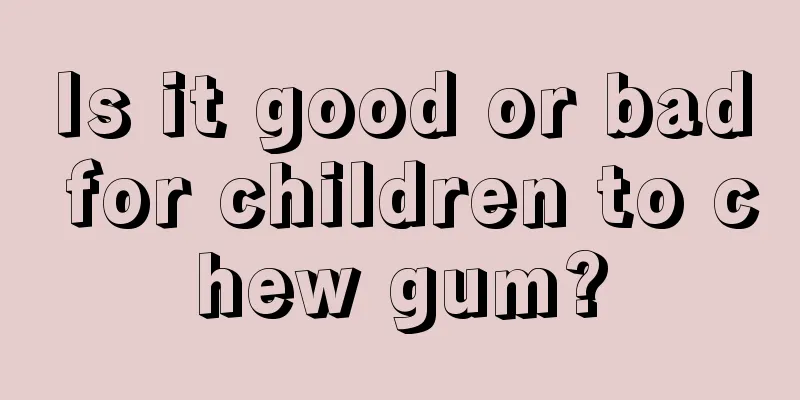Is it hereditary that a 6 and a half year old still has low immunity?

|
In the eyes of many people, people often cannot distinguish between resistance and immunity. In fact, there is a difference between immunity and resistance. Low immunity refers to low immunity to many bacteria, and resistance is the body's own ability to defend against the outside world. Many people still have low resistance at the age of 66. It is not ruled out that this is due to weak constitution caused by genetics. In the eyes of ordinary people, they often cannot distinguish the specific meanings of terms such as immunodeficiency and immune deficiency, and thus confuse them. In fact, low immune function in infants and young children can be divided into three types: congenital immunodeficiency (also known as immunodeficiency), acquired secondary immunodeficiency and physiological immunodeficiency. Congenital immunodeficiency, also known as immunodeficiency in medicine, is caused by the loss of original function of one or more components of the immune system due to factors such as gene mutation, resulting in immunodeficiency. Xiao Ming is one of these people. When suffering from this type of disease, the condition is generally serious and lasts for a long time. The main manifestations are: recurrent infectious diseases; poor treatment response after infection and long-term disease recovery; serious infection after normal vaccination; similar family history; and easy to develop tumors. Common immunodeficiency diseases include antibody deficiency, T cell deficiency, etc. Acquired secondary immunodeficiency, as the name suggests, is immunodeficiency caused by other factors. Common causes of acquired secondary immunodeficiency include: malnutrition; use of immunosuppressants, such as hormones, anti-tumor drugs or exposure to radiation; infection with the human immunodeficiency virus (HIV); etc. Both congenital immunodeficiency and acquired secondary immunodeficiency are pathological and require special treatment. Physiological immunodeficiency is actually a physiological phenomenon and is not a pathological condition. Similar to human intellectual development, no one can expect children to have the same intelligence as adults. Likewise, we cannot expect young children to have the same immunity as adults. For children with low immunity, the first thing to do is to find out which condition they are in. This requires an experienced doctor to make a diagnosis with the help of effective examinations. At present, some institutions in China have carried out genetic diagnosis of several common congenital immunodeficiency diseases. If it is congenital immunodeficiency, early diagnosis is very important to improve the prognosis of the child. The treatment of congenital immunodeficiency requires different measures according to the condition, and the treatment time is longer. The key to acquired secondary immunodeficiency is to eliminate the causes of the immunodeficiency. As long as the infected lesions can be effectively cleared, the immune function will gradually recover. |
<<: What should I do if my baby is born with short legs due to heredity?
>>: Symptoms of nephritis in seven-month-old babies
Recommend
What is the cause of ventricular septal defect in infants?
Nowadays, many babies suffer from some diseases w...
How to correctly judge phimosis in children
Many children are born with phimosis, which is a ...
White spots on children's teeth
In our lives, most parents pay special attention ...
How to treat intestinal flatulence in newborns
Many parents have reported that their babies have...
How to deal with anxiety about entering kindergarten?
When parents first take their children to kinderg...
When should the baby eat D3?
As the baby grows, his body needs many nutrients,...
What can children eat to get better quickly when they have internal heat?
The weather is hot in the summer, and babies are ...
Preventive measures for baby's mouth ulcers
Nowadays, many babies have ulcers at the corners ...
Best treatment for diaper rash in babies
We all know that diaper eczema is the most common...
First aid for children with fever
What parents worry about most is their children&#...
How to deal with heat rash in children?
With the arrival of spring and summer, many child...
How to deal with children not growing taller
Parents are more worried about their children'...
One month old baby sleeps less
A one-month-old baby should be a newborn, and a n...
What to do if your baby's palms and soles are hot when he is one year old
The child has just come into this world from the ...
Newborn baby's eyeball has a membrane
The reason why there is a layer of film on the ey...









